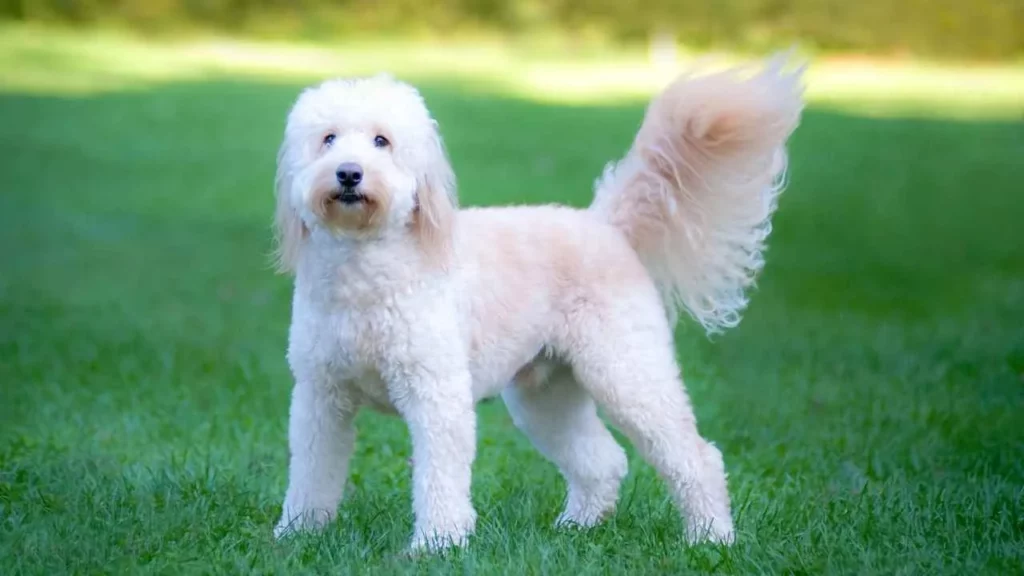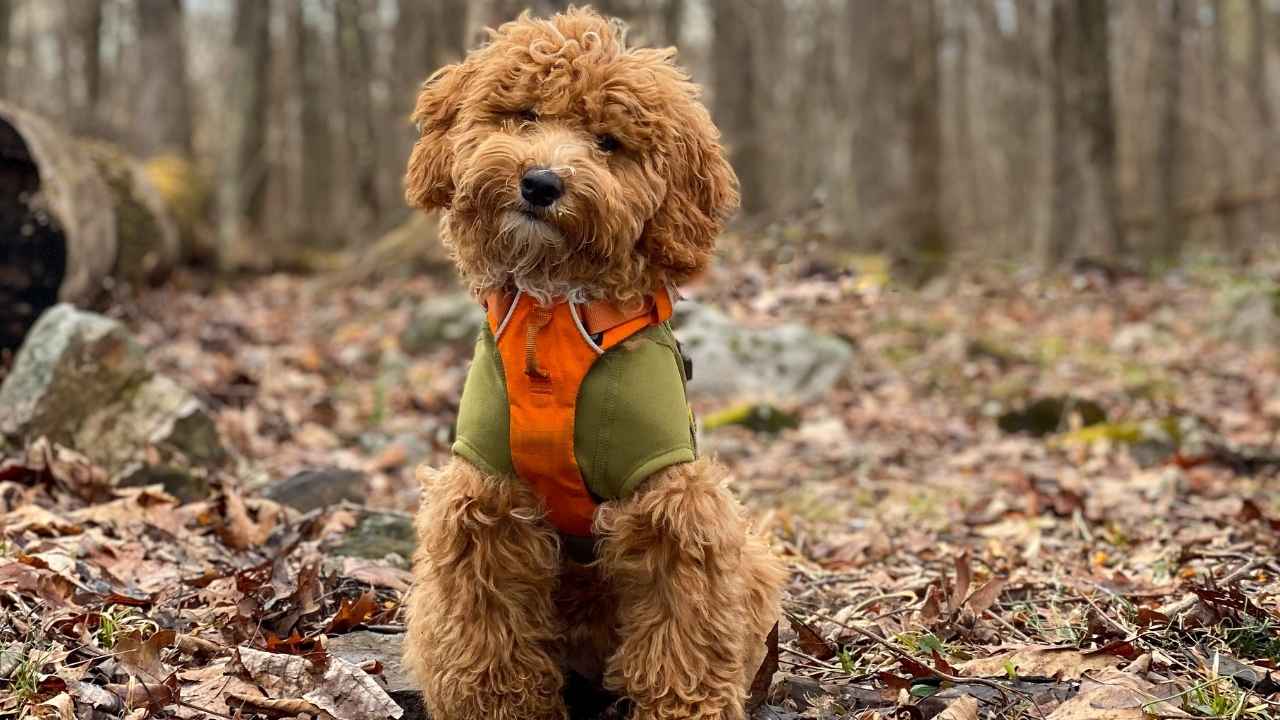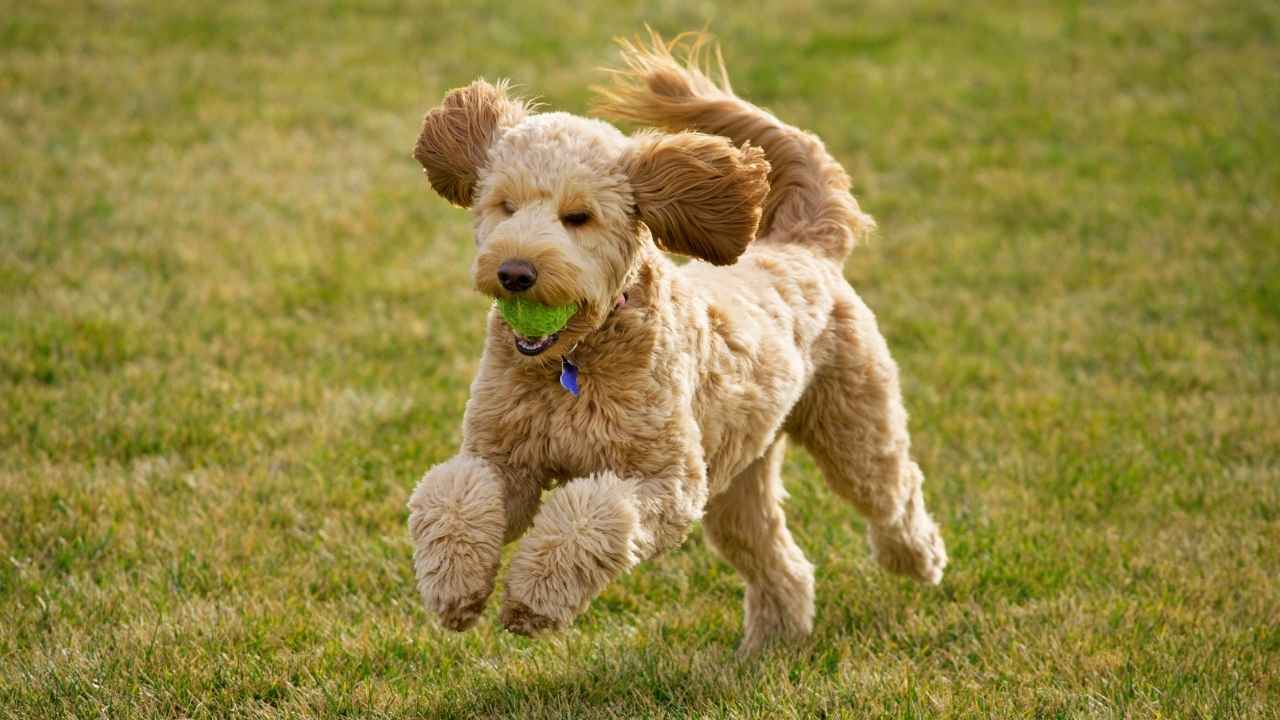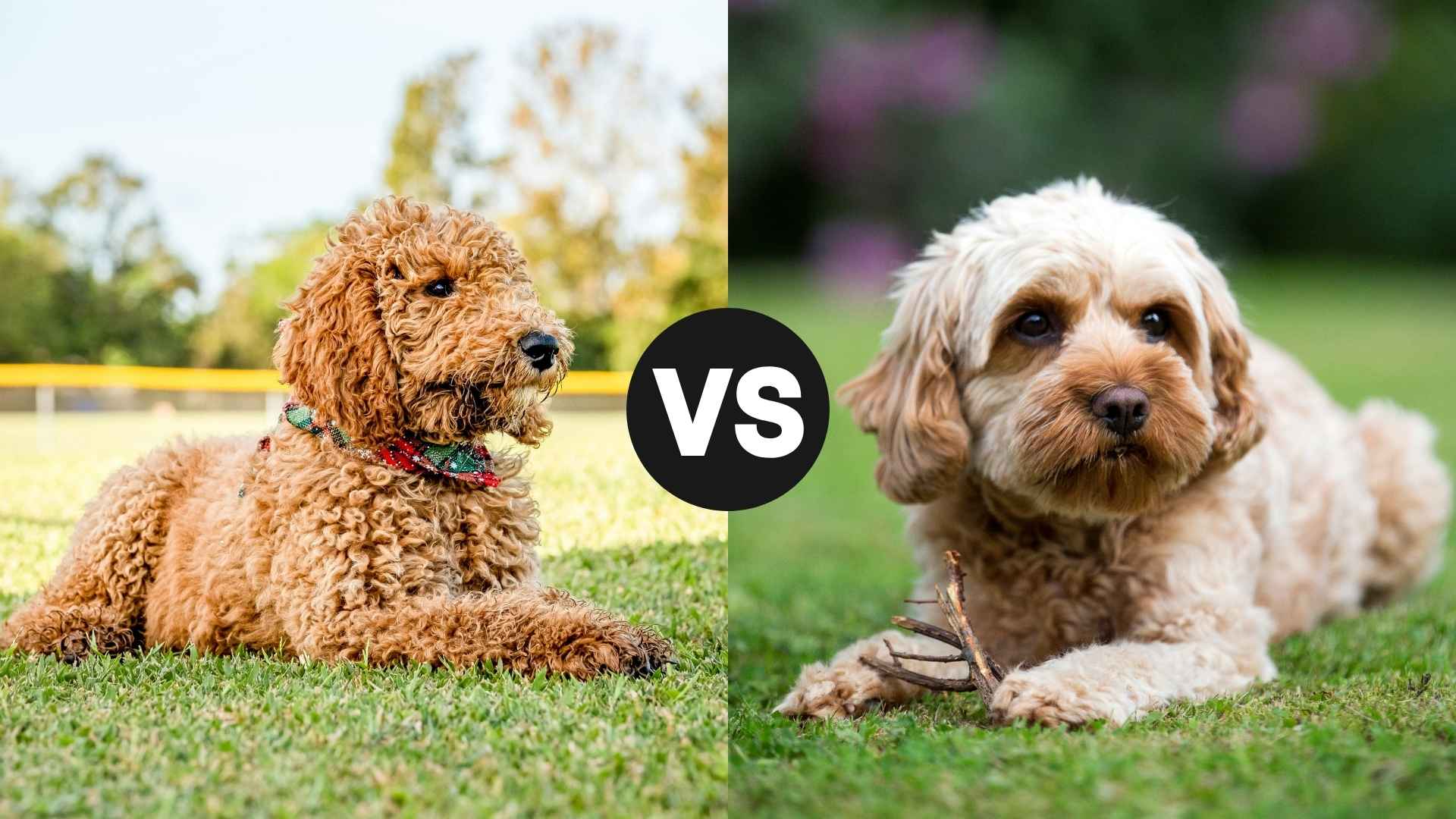Choosing between a Goldendoodle and a Cockapoo? You’re in for a tough (but exciting) decision! Both are adorable, curly-coated, people-loving designer dogs, but they come with their own quirks. Whether you’re after a bigger, adventure-ready pup or a small, snuggly companion, knowing their key differences is a game-changer.
Goldendoodles, a mix of the Golden Retriever and Poodle, are bigger, more energetic and thrive on outdoor fun. If you’re into hiking, running or just need a lively shadow, this fluffy powerhouse won’t disappoint. Cockapoos, a cross between the Cocker Spaniel and Poodle, are smaller, ultra-affectionate, and perfect for a cozy indoor life. They bring all the charm without the extra size.
So, which one’s your perfect match? Let’s break it down—size, temperament, energy levels, and care needs—so you can pick the ultimate four-legged bestie.
Goldendoodle vs. Cockapoo
Goldendoodles and Cockapoos may look similar, but their differences are huge regarding size, energy, and lifestyle needs. Goldendoodles are bigger (up to 90 lbs), more energetic, and love outdoor adventures, making them a great fit for active owners.

Cockapoos, on the other hand, are smaller (10–30 lbs), more adaptable, and thrive as affectionate lap dogs, perfect for apartment living. While both are intelligent and hypoallergenic, Goldendoodles need more exercise and space, while Cockapoos are easier to manage and lower maintenance.
Choosing between them? It all comes down to your lifestyle, space, and energy level!
|
Feature |
Goldendoodle 🐕 |
Cockapoo 🐶 |
|---|---|---|
|
Size |
Medium to Large (50–90 lbs) |
Small to Medium (10–30 lbs) |
|
Energy Level |
High – loves outdoor adventures |
Moderate – enjoys play but also loves cuddles |
|
Exercise Needs |
1–2 hours daily |
30–60 minutes daily |
|
Temperament |
Friendly, social, and intelligent |
Affectionate, playful, and people-oriented |
|
Living Space |
Best with a yard, thrives in open spaces |
Adapts well to apartments and smaller homes |
|
Grooming Needs |
High – regular brushing & grooming required |
Moderate – still needs upkeep but easier to manage |
|
Trainability |
Highly trainable but needs mental stimulation |
Intelligent and eager to please, learns quickly |
|
Best For |
Active families, outdoor lovers, and those with space |
Apartment dwellers, first-time owners, and cuddle lovers |
Goldendoodle vs. Cockapoo: Size
Goldendoodle

Goldendoodles come in various sizes but are generally medium to large dogs. According to PetMD, standard Goldendoodles can weigh anywhere from 50 to 90 pounds and stand up to 24 inches tall at the shoulder. That’s a whole lot of fluffy dog to love!
If you want a smaller version, Mini Goldendoodles exist, but even they tend to be bigger than a Cockapoo. These pups have a solid, athletic build, perfect for outdoor adventures. But be warned—when a full-grown Goldendoodle excitedly jumps on you, you’ll feel it!
Standard: 50–90 lbs, 20–24 inches
Miniature: 25–50 lbs, 16–20 inches
Cockapoo

Cockapoos, on the other hand, are significantly smaller, making them ideal for apartment dwellers or those who prefer a lap-sized companion. Depending on whether they’re Toy, Mini, or Standard, they can weigh anywhere from 10 to 30 pounds and stand 10 to 15 inches tall, says PetMD.
They’re compact but sturdy, with just the right amount of fluff to be cuddly without overwhelming your lap. Ever wanted a pup that can curl up in your arms like a teddy bear? That’s the Cockapoo! Plus, their small size makes them easy to travel with and carry around.
Toy Cockapoo: 10–15 lbs, 10 inches
Miniature Cockapoo: 15–20 lbs, 11–14 inches
Standard Cockapoo: 20–30 lbs, 14–15 inches
Big and active or small and snuggly—what’s your pick?
Goldendoodle vs. Cockapoo: Temperament
Goldendoodle

Goldendoodles are the ultimate friendly, goofball canine companions who thrive on human interaction. They inherit their loving nature from Golden Retrievers and their intelligence from Poodles. They are highly trainable, eager to please, and always up for an adventure.
These dogs are social butterflies—they’ll happily greet everyone at the dog park, charm your guests, and even try to befriend the mailman! But with all that enthusiasm comes a lot of energy. If they don’t get enough exercise and mental stimulation, they can turn into mischief-makers—think shoe stealing and zoomies across the house!
Loves people and other pets
Highly intelligent and easy to train
Needs plenty of mental and physical activity
May develop separation anxiety if left alone too much
Cockapoo

According to Hill’s Pet, Cockapoos are sweet, affectionate, and all about their humans. These pups are the perfect mix of cuddly and playful, making them ideal for families, singles, and seniors alike. They bond deeply with their owners and thrive on attention—don’t be surprised if your Cockapoo follows you from room to room like a fluffy little shadow!
Unlike the more energetic Goldendoodle, Cockapoos are content with moderate exercise and are just as happy snuggling on the couch as they are playing fetch. But be warned: their people-loving nature means they hate being left alone for too long and can develop separation anxiety.
Loyal, devoted, and super affectionate
Playful but not overly hyper
Great with kids and other pets
Prefers to be with their humans as much as possible
So, do you want a playful socialite or a cuddly sidekick?
Goldendoodle vs. Cockapoo: Physical Appearance
Goldendoodle

Goldendoodles have that big teddy bear look that turns heads wherever they go. They have curly coats. With their wavy to curly coats, expressive eyes, and sturdy build, they’re adorable meets athletic. Their size depends on whether they’re Standard or Mini, but regardless, they have a well-proportioned, muscular frame that’s built for action.
Their coats can range from soft waves to tight curls, depending on which parent they take after more. Colors? You name it—golden, apricot, red, cream, chocolate, black, or even multicolored! One thing’s for sure: with their fluffy, shaggy appearance, they’re impossible to resist.
Medium to large build with an athletic frame
Wavy or curly, hypoallergenic coat
Variety of colors, from golden to chocolate
Floppy ears and a fluffy, expressive face
Cockapoo

Cockapoos may be smaller, but they’re just as charming! These pups have a compact, well-balanced body with a soft, curly coat that gives them an adorable, teddy bear-like look. Their size varies based on whether they’re Toy, Mini, or Standard, but they all share round, soulful eyes and floppy ears that instantly melt hearts.
Their coats can be curly, wavy, or even slightly straighter, and they come in tons of colors, including cream, tan, black, red, chocolate, and even spotted patterns. Cockapoos have a gentle, soft expression that perfectly matches their affectionate nature—just try saying no to that face!
Small, compact frame with a balanced build
Soft, curly, or wavy coat, hypoallergenic
Floppy ears and round, expressive eyes
Comes in a variety of coat colors and patterns
Fluffy and energetic or small and cuddly—which look do you love more?
Goldendoodle vs. Cockapoo: Grooming & Care
Goldendoodle

Goldendoodles have thick, wavy to curly coats that require regular grooming to keep them looking their best. Their fur can become a tangled mess if you don’t brush them at least 3–4 times a week. And let’s talk about professional grooming—expect a trip to the groomer every 6–8 weeks for trims and upkeep.
Their Poodle genes make them low-shedding, but that doesn’t mean zero effort! Regular baths, ear cleaning (they’re prone to infections!), and nail trimming are musts. Plus, Goldendoodles love outdoor adventures, which means they pick up dirt, leaves, and who-knows-what-else in their fluffy coats—so be ready for frequent cleanups!
Brush 3–4 times a week to prevent matting
Professional grooming every 6–8 weeks
Regular ear checks to prevent infections
Frequent baths, especially after outdoor play
Cockapoo

Cockapoos have softer, finer curls that need consistent grooming, but they’re slightly easier to manage than a Goldendoodle’s coat. A 2–3 times a week brushing session should do the trick to keep their curls tangle-free.
Like Goldendoodles, they also require professional grooming every 6–8 weeks to maintain their fluffy, adorable look. Since they have floppy ears, they’re also prone to ear infections, says Purina, so regular checks and cleaning are a must. The plus side? Their smaller size means less fur, and bathing is much quicker than their larger Goldendoodle cousins!
Brush 2–3 times a week to prevent tangles
Professional grooming every 6–8 weeks
Regular ear cleaning to avoid infections
Easier to bathe and maintain due to their smaller size
Want a big fluff ball or an easier-to-maintain curly cutie? The choice is yours!
Goldendoodle vs. Cockapoo: Health & Well-Being
Goldendoodle

Goldendoodles are generally healthy dogs, but like any mixed breed, they can inherit certain health concerns from their parent breeds. Since they have Golden Retriever genes, they are prone to hip and elbow dysplasia, which can lead to mobility issues as they age. They may also develop ear infections due to their floppy ears trapping moisture and debris.
Another common issue? Allergies and skin sensitivities, which can cause itching and irritation. On the bright side, with proper exercise, a balanced diet, and regular vet check-ups, Goldendoodles can live long, happy lives, typically 10–15 years.
Prone to hip & elbow dysplasia
Ear infections are common—regular cleaning is essential
May have allergies or skin sensitivities
Lifespan: 10–15 years with good care
Cockapoo

Cockapoos are small but sturdy dogs with a longer lifespan, often reaching 12–16 years. While they are generally healthy, they are prone to eye problems, such as progressive retinal atrophy (PRA), which can lead to vision loss. Their Poodle heritage also makes them susceptible to luxating patella (a kneecap issue), affecting their mobility.
Like Goldendoodles, their floppy ears make them prone to infections, so regular cleaning is a must. They may also experience dental problems, so routine teeth cleaning is highly recommended to prevent issues as they age.
Prone to eye conditions like PRA (progressive retinal atrophy)
Luxating patella (knee issues) can develop
Floppy ears = higher risk of infections
Lifespan: 12–16 years with proper care
Both breeds are generally healthy, but are you ready for a larger pup with potential joint issues or a smaller one with eye concerns?
Goldendoodle vs. Cockapoo: Life Expectancy
Goldendoodle

Goldendoodles have a decent lifespan of 10–15 years, thanks to their hybrid vigor. However, their size plays a big role—Mini Goldendoodles tend to live longer than Standard ones. While they’re generally healthy, issues like hip dysplasia, heart disease, and cancer (common in Golden Retrievers) can sometimes shorten their lifespan.
The key to a long, happy life? A nutritious diet, regular exercise, and routine vet check-ups. Plus, keeping their weight in check can help prevent joint issues as they age.
Smaller Goldendoodles tend to live longer.
Health issues like hip dysplasia can impact lifespan
Proper care and weight management are crucial
Average lifespan: 10–15 years
Cockapoo

Cockapoos win in the longevity department, living around 12–16 years—sometimes even longer! Thanks to their Cocker Spaniel and Poodle genetics, they tend to be resilient and long-lived. However, they can develop eye diseases like progressive retinal atrophy (PRA), luxating patella (knee issues), and dental problems.
Cockapoos are extremely friendly, easily trained, energetic dogs, says Petplan. Regular vet visits, a high-quality diet, and good dental care can help keep them happy and healthy well into their golden years.
Cockapoos have a longer lifespan than Goldendoodles
Common issues: eye diseases, knee problems, and dental concerns
Proper nutrition and vet care are essential for longevity
Average lifespan: 12–16 years
Looking for a long-time companion? The Cockapoo might have the edge when it comes to lifespan!
Conclusion
Goldendoodles and Cockapoos are two highly popular doodle breeds known for their affectionate temperament, hypoallergenic coat, and boundless energy. These poodle hybrids inherit desirable traits from their parent breeds—the Golden Retriever and Miniature Poodle for the Goldendoodle breed, and the Cocker Spaniel and Poodle parent for the Cockapoo. Goldendoodles vs Cockapoos differ in size, as Goldendoodles are typically medium-sized dogs, while Cockapoos and Goldendoodles have smaller versions that vary depending on the poodle parent. Their coat type can range from wavy, straight, or long hair, and their grooming needs include regular grooming to maintain a low-shedding coat and prevent separation anxiety.
When comparing Cockapoo vs Goldendoodle, both breeds are known for their social nature and adaptability to different households, whether with families, singles, or seniors. However, Goldendoodles require more exercise due to their boundless energy and need more space, making them ideal for active owners with a yard or frequent trips to the dog park. Conversely, Cockapoos are a smaller dog breed with slightly lower exercise needs, making them better suited for apartments or homes with a neighbor’s dogs nearby for social interaction.
Unfortunately, these breeds are often found in puppy mills, making it crucial to adopt from a reputable breeder. Proper training with positive reinforcement from an early age ensures that they grow into well-behaved, potty-trained pets. Both breeds are great companions with excellent temperaments, but their exercise needs, grooming maintenance, and health issues should be considered. Whether you choose a Goldendoodle or Cockapoo, both doodle dogs bring love, joy, and companionship into any home!


